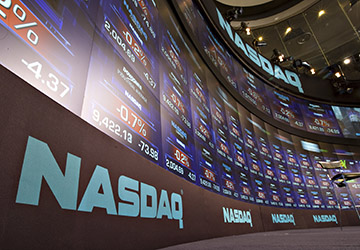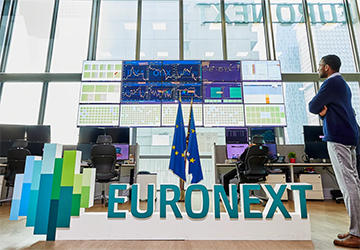Top 6 Stock Exchanges and Their Global Impact
In the busy world of global finance, stock exchanges are at the centre of economic performance, determining the fate of countries and influencing the course of industries. We set out to explore six major stock exchanges, from the legendary Wall Street giant, the New York Stock Exchange (NYSE), to the tech mecca Nasdaq, to the Tokyo Stock Exchange (TSE), the economic hub of Asia. , we untangle these networks of financial power.
Join us on a journey to the intersection of finance, where the convergence of capital and trade paints a vivid picture of an interconnected global economy.
Stock markets and their impact on the global economy
In the complex global financial network, stock exchanges serve as nerve centres that influence the economy, shape industries, and reflect the pulse of the financial world. In these busy markets, companies go public, investors trade securities, and wealth is created or lost. In this study, we look at six major stock exchanges in-depth, revealing their unique characteristics and profound impact on the global economy.
1. New York Stock Exchange (NYSE)
When you think of the stock market, the New York Stock Exchange (NYSE) inevitably comes to mind. It is located at the centre of financial influence and is the largest stock exchange in the world. It surpasses its competitors with an unprecedented market capitalization. With a history dating back to 1792, the New York Stock Exchange has weathered economic storms and become a symbol of resilience.
The global influence of the New York Stock Exchange is staggering, serving as a barometer of the health of the U.S. economy and its impact on international markets. Famous companies such as Apple, Microsoft and Coca-Cola use the New York Stock Exchange as their headquarters, reflecting their reputation and importance in the corporate world.

2. Nasdaq
In stark contrast to the size of the New York Stock Exchange, Nasdaq is a technology giant. Founded in 1971, the exchange has become synonymous with innovation and is home to several tech giants, including Amazon, Google parent Alphabet and Facebook. Nasdaq's electronic trading platform sets it apart from traditional exchanges, and its speed and efficiency cater to the dynamism of the technology industry.
Nasdaq's influence transcends the borders of the United States and has become a benchmark for the global technology industry. Its unique entry requirements attract cutting-edge companies and make it a breeding ground for the next generation of tech giants.
3. Tokyo Stock Exchange (TSE)
When entering the Asian circle, the Tokyo Stock Exchange (TSE) attracts attention as the key to the region's economic landscape. Founded in 1878, the Tokyo Stock Exchange grew with Japan's economic rise, reflecting the country's shift from postwar recovery to technological innovation.
The Tokyo Stock Exchange is important in the global economy and is the gateway to Asia for international investors. Traditional companies such as Toyota and Sony, listed on the Tokyo Stock Exchange, epitomize Japanese industrial performance, influencing the global market and contributing to global economic interconnection.
4. London Stock Exchange (LSE)
Located at the heart of this historic city, the London Stock Exchange (LSE) is a testament to Britain's financial strength. Since its founding in 1801, the London Stock Exchange has played a vital role in shaping the global economy. The wide variety of listed companies from different industries highlights the international influence of the stock exchange.
Brexit may have changed that dynamic, but the London Stock Exchange remains the financial centre connecting investors and businesses worldwide. His influence was not limited to Europe; it spread across all continents, facilitating the mobility of global capital.
5. Hong Kong Stock Exchange (HKEX)
As Asia's economies continue to rise, the Hong Kong Stock Exchange (HKEX) demonstrates the region's financial importance. Founded in 1891, Hong Kong Exchanges and Clearing has grown into a global economic powerhouse connecting markets from East to West.
Hong Kong Exchange's strategic location makes it the preferred stock exchange destination for Chinese companies seeking global business. Due to its unique position at a cultural crossroads, this exchange facilitates the flow of capital between East and West and significantly contributes to the global economic structure.

6. Euronext
Euronext has become a unifying force among European stock exchanges. In 2000, Euronext connected the financial centres of Amsterdam, Brussels, Dublin, Lisbon, Milan and Paris. This convergence of exchanges reflects the diverse economic landscape of European countries and promotes cooperation and cohesion.
Euronext's influence has expanded beyond Europe as more and more leading companies choose the exchange to list. As a pan-European force, Euronext strengthens the interconnectedness of the continent's economies and plays a crucial role in shaping the European financial narrative.
Stock market impact
The global economy is heavily influenced by stock markets, profoundly impacting various stakeholders, economies and industries. Here are some critical implications:
Capital formation:
Stock exchanges make it easier for companies to raise money by issuing stocks and bonds. This capital supports business expansion, research and development, and innovation.
Create wealth:
Investors can participate in a company's financial success through the stock exchange. As these companies grow and become profitable, investors see a return on their investment, helping to create personal and institutional wealth.
Company management:
Stock exchanges impose listing requirements that require companies to meet certain transparency and corporate governance standards. This promotes responsibility, ethical business practices and investor trust.
Diploma
In the great symphony of global finance, these six significant exchanges have composed a resonant melody that transcends national borders. Each exchange has its unique characteristics, but together, they form the backbone of an interconnected global economy. From the towering skyscrapers of Wall Street to the bustling markets of Tokyo to the historic corridors of London, these exchanges are the pulse of our global economic ecosystem.
In an era of globalization, where borders are blurred, and economies are intertwined, the importance of these exchanges transcends national borders. They are conduits through which capital flows, ideas converge, and wealth is created.


